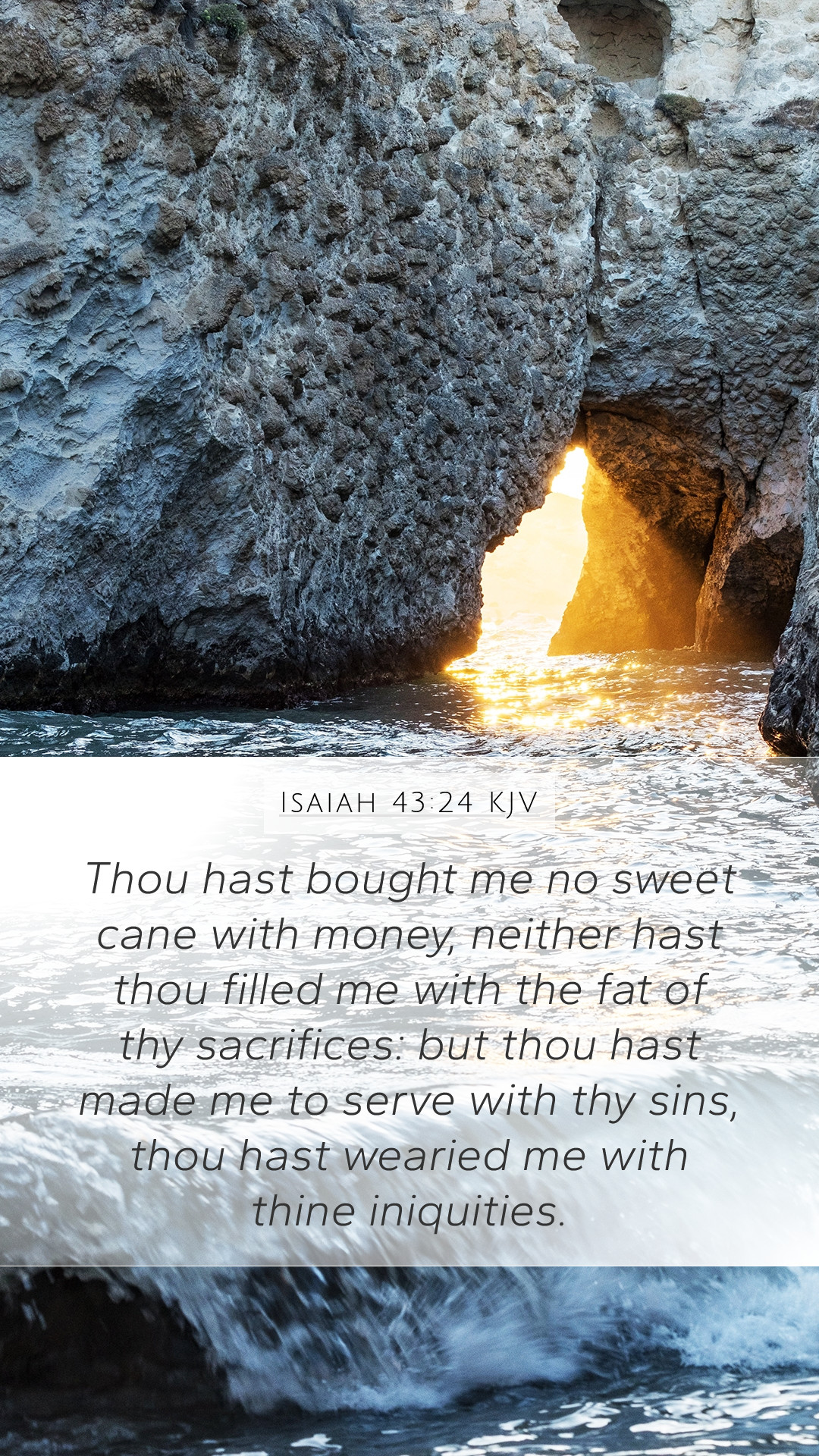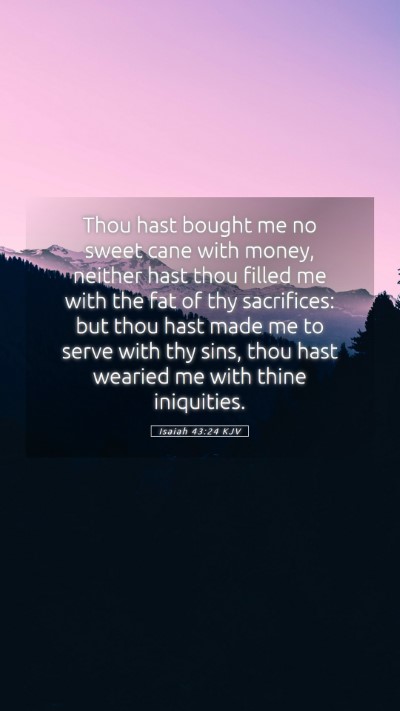Understanding Isaiah 43:24
Isaiah 43:24 presents profound insights into God's relationship with His people, emphasizing themes of forgiveness, divine provision, and the expectations of sincerity in worship. The verse reads:
"Thou hast bought me no sweet cane with money, neither hast thou filled me with the fat of thy sacrifices; but thou hast made me to serve with thy sins, thou hast wearied me with thine iniquities."
Verse Meaning and Interpretation
This verse can be deepened through comprehensive commentary. Key public domain scholars provide valuable perspectives:
- Matthew Henry: Henry highlights that God, although deserving of honor, expresses disappointment in Israel's lack of genuine offerings and worship. He emphasizes God's role as a gracious benefactor, lamenting that the people fail to reciprocate His kindness through sincere devotion.
- Albert Barnes: Barnes elaborates on the types of sacrifices that were expected, noting that sweet cane and fat offerings symbolize deep gratitude and commitment to God. He indicates that the spiritual neglect of Israel comes with consequences, stressing that neglecting such responsibilities burdens God with their transgressions.
- Adam Clarke: Clarke focuses on the metaphor of weariness. He outlines how Israel, instead of bringing joy through worship, has introduced God to their sins and transgressions, thereby reflecting the need for repentance and a return to true worship practices.
Biblical Exegesis and Contextual Analysis
To truly grasp the implications of Isaiah 43:24, it's crucial to consider its place within the larger narrative of Isaiah:
- Historical Context: The book of Isaiah is largely prophetic, addressing the people of Israel during troubling times, when they had strayed from their faith.
- Thematic Considerations: This verse encapsulates the overarching themes of restoration and judgment, wherein God calls His people back to sincerity in their worship.
Bible Study Insights
Insights for group discussions and personal reflection:
- What constitutes true worship? Reflect on practices of worship in your community.
- The nature of God as both generous and just: Discuss how God’s expectations maintain His holiness.
Application of Isaiah 43:24
As believers, drawing practical lessons from this verse can aid our faith journey:
- Examine personal worship practices: Are we giving our best to God, or are we merely going through the motions?
- Repentance and renewal: Reflect on areas of life where sin may be present and seek God’s forgiveness.
Cross References
- Isaiah 1:13-14: God expresses disdain for empty rituals.
- Malachi 1:8: A call to offer our best to God.
- Exodus 30:23-25: The significance of fragrant offerings to God.
Conclusion
Isaiah 43:24 invites believers to evaluate their relationship with God, understanding that worship extends beyond mere rituals to a heartfelt communion with the Divine. Through insights drawn from biblical commentaries, we find that this verse serves as a reminder for sincere engagement in worship and the acknowledgment of our shortcomings in honoring God.
Further Study Suggestions
For those seeking deeper knowledge, consider engaging in:
- Participating in Bible study groups focused on the Old Testament.
- Utilizing Bible study tools to cross-reference related texts.
- Exploring online Bible study platforms for community discussions.


